AbFlex® Recombinant Antibodies
Highly specific, reproducible antibodies
 AbFlex® antibodies from our partner company Active Motif are recombinant antibodies (rAbs) that have been generated using defined DNA sequences to produce highly specific, reproducible antibodies. Each AbFlex® antibody contains a sortase recognition motif (LPXTG), a 6xHis Tag, and a Biotinylation Tag sequence.
AbFlex® antibodies from our partner company Active Motif are recombinant antibodies (rAbs) that have been generated using defined DNA sequences to produce highly specific, reproducible antibodies. Each AbFlex® antibody contains a sortase recognition motif (LPXTG), a 6xHis Tag, and a Biotinylation Tag sequence.
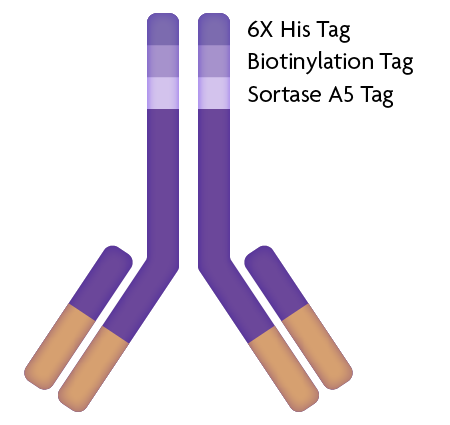 Advantages of AbFlex® Recombinant Antibodies (rAbs)
Advantages of AbFlex® Recombinant Antibodies (rAbs)
- Flexible labeling & purification options
- Consistent performance across lots
- Highly specific and sensitive antibodies
- Reliable, long-term supply
- Animal-free production
Each AbFlex® antibody contains a sortase recognition motif (LPXTG) to covalently add fluorophores, enzymatic substrates (HRP, AP...etc), peptides, DNA, drugs or other labels to the antibody in a directed and reproducible manner using Active Motif's Sortag-IT™ Labeling Kits. Every antibody also contains a 6xHis Tag, which can be used with nickel-based purification systems, as well as a Biotinylation Tag sequence for enzymatic biotin conjugation using the biotin ligase, BirA.
AbFlex® antibodies are specifically labeled at the end of the constant region of the heavy chain to avoid interference with antigen recognition and functionality. This is important as it ensures the labeling process maintains the integrity of the antibody so signal is not diminished as a result of non-functional antibodies. In contrast, commonly used chemical labeling methods add labels to the antibody in a random fashion. The randomness of this process has a high potential to block the antigen-binding site and render the antibody ineffective. Chemical labeling can also deposit labels on the Fc region of the antibody which has the potential to obstruct interactions with protein A.

To ensure optimal performance, each AbFlex® antibody is carefully screened for specificity and sensitivity. Only heavy and light chain sequences that produce highly specific antibodies, as verified in our bead-based binding assay, are selected. Antibodies that utilize the AbFlex® direct labeling approach also show greater sensitivity than their parent monoclonal antibodies across a variety of applications. Another advantage of AbFlex® recombinant antibodies is the fact that they are produced outside of an animal system.
Antibody Labeling for site-specific conjugation to AbFlex® rAbs
Sortag-IT™ Labeling Kits are designed for site-specific labeling of Active Motif's highly specific AbFlex® recombinant antibodies (rAb) via the Sortase tag recognition sequence (LPXTG) that is incorporated into the heavy chains of each AbFlex antibody. Directly conjugate fluorophores, enzymes (HRP, AP), biotin, peptides, DNA, carbohydrates or other labels to the terminal end of the heavy chain to ensure the antigen binding site remains available for target recognition.

Sortase A belongs to a family of transpeptidases found in Gram-positive bacteria that catalyze the attachment of poly-Glycine (G)n labels to the sortase recognition sequence. The Sortag-IT Labeling Kits use Active Motif's Sortase A5 pentamutant from Staphylococcus aureus that is significantly more active than wild-type Sortase to provide a faster, more efficient labeling reaction. Simply add your AbFlex antibody with the poly-Glycine label, add Sortase A5 and incubate for approximately 1 hour. Purification columns are included to remove excess label and Stop Solution is provided to inactivate the Sortase A5 enzyme. Labeled antibodies are ready for downstream analysis or can be stored at 4°C for up to 3 months.
15.02.2022
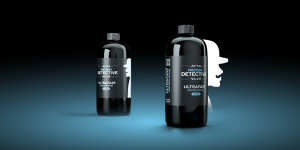
New: Protein Detecti...
Your sidekick for protein staining
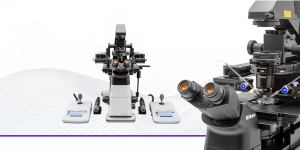
Cell Manipulation
MDR Approval for Medical Devices
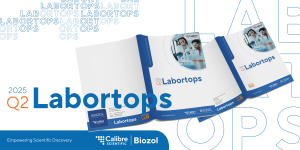
Labortops #2
Super Sale: up to 88% off labware
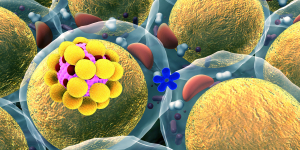
Obesity and Metaboli...
Research Reagents from Rockland, GeneTex and more

Spring Promo
Up to 30 % off Antibodies and ELISA kits


